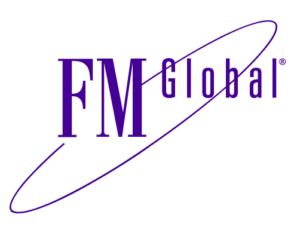

Building resilience into your business is no longer a choice. We used to think companies could choose to proactively defend themselves from known risks as they tackle the market, but this is not the case anymore. It has become essential to maintaining business continuity and value.
Who would have thought that Covid-19 would have such an impact on people and businesses globally? The unexpected happened and has reset our risk barometer, delivering many lessons. If disruption can happen at this scale, what should we be prepared for next?
Knowledge needs are changing, too. Business leaders know a lot about processes, financial structures, supply chains and distribution networks. But they don’t typically possess deep knowledge of rising sea levels, water supply availability or other risks that may have an impact on manufacturing value chains and shareholder expectations.
Specifically, the growing appreciation of the impact of climate risk is a catalyst for change, with regulators around the world increasingly making climate risk disclosures mandatory. Stock exchanges are also demanding corporations to ‘explain or comply’ regarding their business’ materiality and other risks. These are leadership responsibilities that did not exist ten years ago and now require new skills and data.
At the same time, exposure growth in high-hazard geographies, inflation and climate variability mean the insurance industry needs to be prepared to deal with a US$200 billion annual loss aggregation – doubling levels over the past six years. This all contributes to the growing recognition of resilience as a foundation of business growth.
A business’ growing challenge in tackling multifaceted risks
Natural hazard exposures across Asia Pacific geographies vary significantly. In Singapore for instance, threats are relatively benign except perhaps for flood and rising sea level risks, though the government is proactively mitigating these through various green investments and initiatives. But further north, typhoons, earthquakes, and floods are an ever-present threat in China, Taiwan, Malaysia, Philippines and Vietnam.
As upstream manufacturing continues to move from China into South-East Asia, in particular to Vietnam and Thailand, new regulatory, environmental and talent risks are emerging. Climate-related risks like rising temperatures and the increasing prevalence of flooding events are creating new exposures and threatening business resilience across old and new supply chains.
For example, by building a factory in a different geography you diversify supply chain risk, but there is also a need to recognise there may be new or emerging risks associated with that new location. How do you choose between Hanoi or Ho Chi Minh? What are the current flood exposures and how will rising sea levels affect this in the near-term and mid-term? What types of safety and risk prevention solutions should be considered in these facilities? Do sprinklers, fire alarms, roofing and wall panels meet the specifications and standards required to maintain business continuity and customer expectations of a global business, regardless of the local requirements? While your own facility may be robust and risk-managed, can the same be said for the suppliers and partners you rely on?
Resilience tools to value-add and support business continuity in today’s world
Fortunately, there are tools at hand to help business leaders take action and deliver accountability to shareholders and other stakeholders.
FM Global’s Climate Change Impact Report is a tool that helps property owners aggregate a range of engineering and business data to understand their climate-related exposures and inform solutions that will engineer out risks and protect business value at the core.
This is supported by the Resilience Credit, which is issued to eligible FM Global clients to bolster their investments in climate resilience solutions against extreme weather hazards such as wind, flood and wildfire. According to FM Global data, its first-ever resilience credit of US$300 million in 2022 accelerated the implementation of natural hazards-related recommendations. This is a key benefit of the company’s mutual structure, where clients are effectively shareholders.
With the 2023 resilience credit of US$350 million as well as the US$800 million membership credit, FM Global announced a total of US$1.15 billion in credits last year, which has the potential to help organisations reduce total loss expectancies related to wind, flood and wildfire by more than US$120 billion. The credits not only encourage business leaders to invest in climate and other resilience-building solutions, but they also support value creation, which benefits their stakeholders.
FM Global’s Resilience Index – a free-to-access online resource – provides a much wider lens on prevailing macroeconomic factors affecting operations in any particular geography. The FM Global Resilience Index is particularly valuable for business leaders in making informed decisions on site selection, supply chain design and loss prevention.
For example, Asia’s mature geographies such as Singapore, Japan and South Korea have always been attractive to business leaders due to their strong economic and supply chain resilience, largely owing to the governments’ emphases on building a robust infrastructure and having strong legal and regulatory bodies.
In today’s world, where business operates in a constantly evolving macroeconomic landscape coupled with geopolitical tensions resulting in supply chain disruptions, it is imperative that businesses take a proactive step in assessing their risk profile.
The ability to assess economic, risk quality and supply chain resilience to build a business or organisation that not only has the ability to withstand climate-related risks, but weather through other headwinds and challenges, and remain sustainable, is now of vital importance.
Where building business resilience was once an option for consideration in the context of fast-moving, high-growth geographies, recent experience and the continued evolution of markets and supply chains have removed that choice and reframed risk management as a business enabler.
 |
Tan Hian Hong
Operations Senior Vice President, Operations Manager, Asia, FM Global Email: [email protected] |
-
Allianz General | Allianz General combines innovative protection solutions while powering social good to lead Malaysian market
The insurer proactively addresses emerging risks and evolving customer protection needs while giving back to the community.
-
Sedgwick | Asia’s Energy Transformation – Balancing Growth, Risk and Renewables
Energy market presents unique risks, especially in a region which includes China and Japan as well as developing nations like Vietnam and the Philippines.
-
Beazley | Turbulent Waters: the maritime energy transition challenge
Businesses are facing a complex transition to non-carbon energy sources amid a push to achieve net-zero emissions for the marine sector by 2050.
-
Aon | Navigating shifts in the global and Asia insurance markets
Neelay Patel, Aon head of growth for Asia, says the market in Asia is at an ‘interesting stage of the cycle’.
